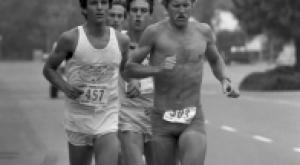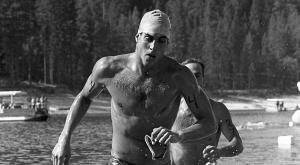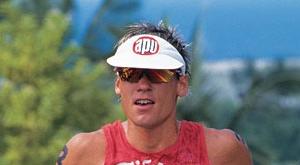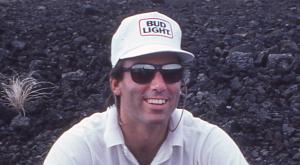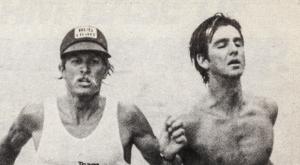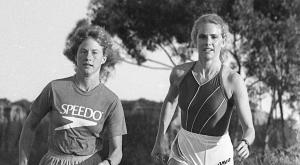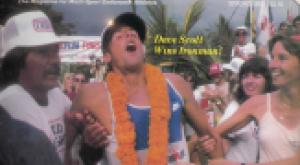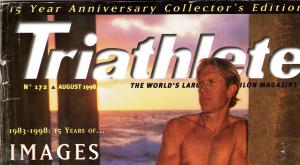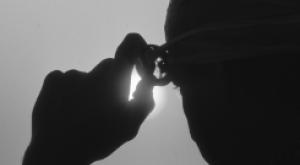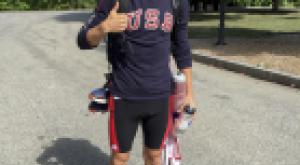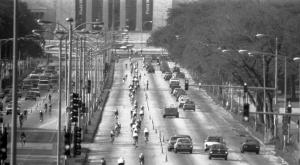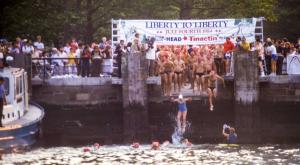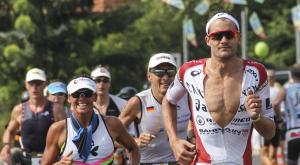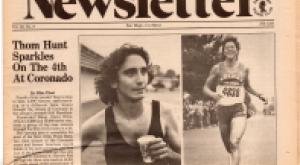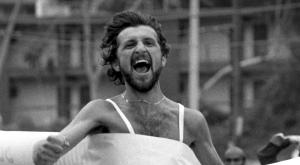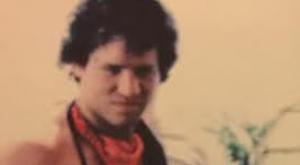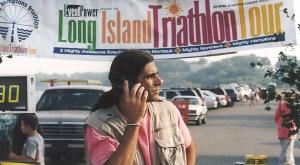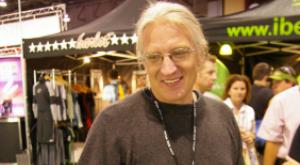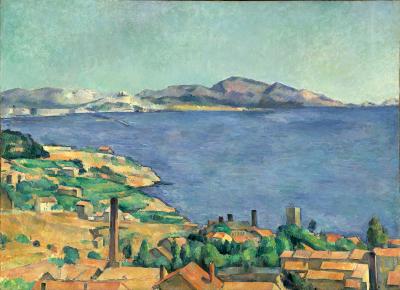
Was Marseilles, France the original Fiesta Island? (Paul Cezanne's The Gulf of Marseilles as seen from Lestaque)
People love to celebrate birthdates for the sake of celebration, a bit of history, and a few beers. And in the case of the first triathlon, TriHistory.com is guilty of this charge. Forty years to the hour after 9/25/74, when forty one participants gathered on those boggy and incomplete shores of Mission Bay, a bunch of us gathered and drank beer. And celebrated our locally-global history. Much ballyhoo was awarded San Diego’s Fiesta Island; the group back-slapping each other…damn we were young and bitchin’ then. So prescient, so tan. Ground frickin’ zero not a two wood and a seven iron from here.
But were there other triathlons before that inaugural September 25, 1974 evening catalyzed by race directors Don Shanahan and Jack Johnstone? And if so, where did they go? Do they matter? Did we miss them in our xenophobic flurry of self-congratulation?
Did they serve beer at the finish?
The Third Olympiad of the Modern Games held in St. Louis, Missouri, 1904, included a three-sport competition. Won by an American known only as Emerich, the event consisted of the long jump (21 feet, 7 inches), shot put (32 feet, 3 inches),and the 100 yard dash (10.6 seconds). In many Olympic Almanacs and resource guides the event in question is referred to as a “triathlon.”
And then there is the interesting story of one Charles Secter, who, according to his grandson, John McBride, claimed to have competed in a bike/run/swim event in Marseilles on the southern coast of France on September 4, 1921. Sector was 19 years old at the time. McBride came to tell this story of his grandfather to 1981 Ironman winner, John Howard because as Howard recalls, “he was a fellow BMW enthusiast and drove his older 6 series to Encinitas from Austin, TX just to ride with me.” But McBride was convincing and Howard developed the story with interviews of Charles and his grandson just a few months before Charles passed away. The tale eventually found its way into mid 90s issue of Triathlete Magazine.
“Our family owned a hotel in Marseilles called the De Paris,” Secter recalls to Howard. “It was just across the street from the train station which was still damaged from the war. We started the race at Palace Castellane, south of the old Port. I recall maybe 10 or 12 racers—the bicycle was the first event. Mine was an everyday model with no gearshift. We raced down Avenue du Prado, a beautiful tree-lined route, for 5 to 7 kilos to a sign-in table.
“There we started our run along the Corniche Road. We then ran to the pool at Petit Pavillon, a distance of about 5 kilometers. From there we ran down a flight of steps to the beach and into the Mediterranean. We swam out to a buoy 100 yards or so and then back to the shore for the finish.”
McBride remembers asking his grandfather, “Were you the top man?”
“Oh no, not me,” he answered. For the record, the race was won by a woman named Lulu Helmet.
For his part, John Howard confronts his recall of another man’s memory. “The interview with Charles was short because he was not in great health, his age was around 85-86,” Howard said. “He (Secter) spoke with a slight accent. I asked the usual questions about how old he was at the time—19, I think--How he finished--in the middle of the pack--was there a prize for winning--hmmm--what were the distances of each leg--it was fairly short--order--I think it went bike, run, on the long tree lined boulevards of Marseilles, and then swimming in the harbor.”
Great details for sure, but where to place them in some grand genealogy of triathlon? Was Charles Secter the winner of the first triathlon? Or was it Emerich from the St. Louis Olympics in 1904? Were there others that historians have missed? How do we discern and define the sport long after no one ever considered it a sport?
In the analogs of sports’ history there must’ve been many three-part events contested. Perhaps a few included swimming, cycling, and running. The degree of organization would run the gamut from a backyard challenge to something that made the evening news, even if it was the town crier singing praises of a village victory. But if an authentic history relies on empirical proof, then upon what basis of belief do we authenticate the secret Secters among us?
Howard recalls, “the most memorable part…was a classic group shot of the participants--an almost perfect mix of young men and women, leisurely hanging out in their period swim costumes near the harbor with Charles front and center in a black ‘tri suit’. It was a great clear shot with a wonderful era patina.” Ah, but for now, that early 90s image, itself buried in Howard’s back closet and/or the impenetrable vaults of Triathlete Magazine, seems lost. But if or when it’s found, should triathlon historians re-frame notions of originality?
If we are going to dig up bodies, do all the bones need to be counted and curated?
“So, John,” I pressed, “I still don’t see the impetus to challenge the San Diego-centric version of history with one black and white image and palatable but single claim?”
“I'm a student of history,” Howard reminds me, “and the event did take place and it did include bike, run, and swim components. Even though they didn't call it a triathlon, and it went nowhere, it may or may not have been ‘the first.’ (And) Since the San Diego event did have legs and a name, it will always be---rightfully so--considered the first triathlon. I would not challenge that notion, but (I’d) still want readers to know that other athletes of another era had similar event years earlier.”


